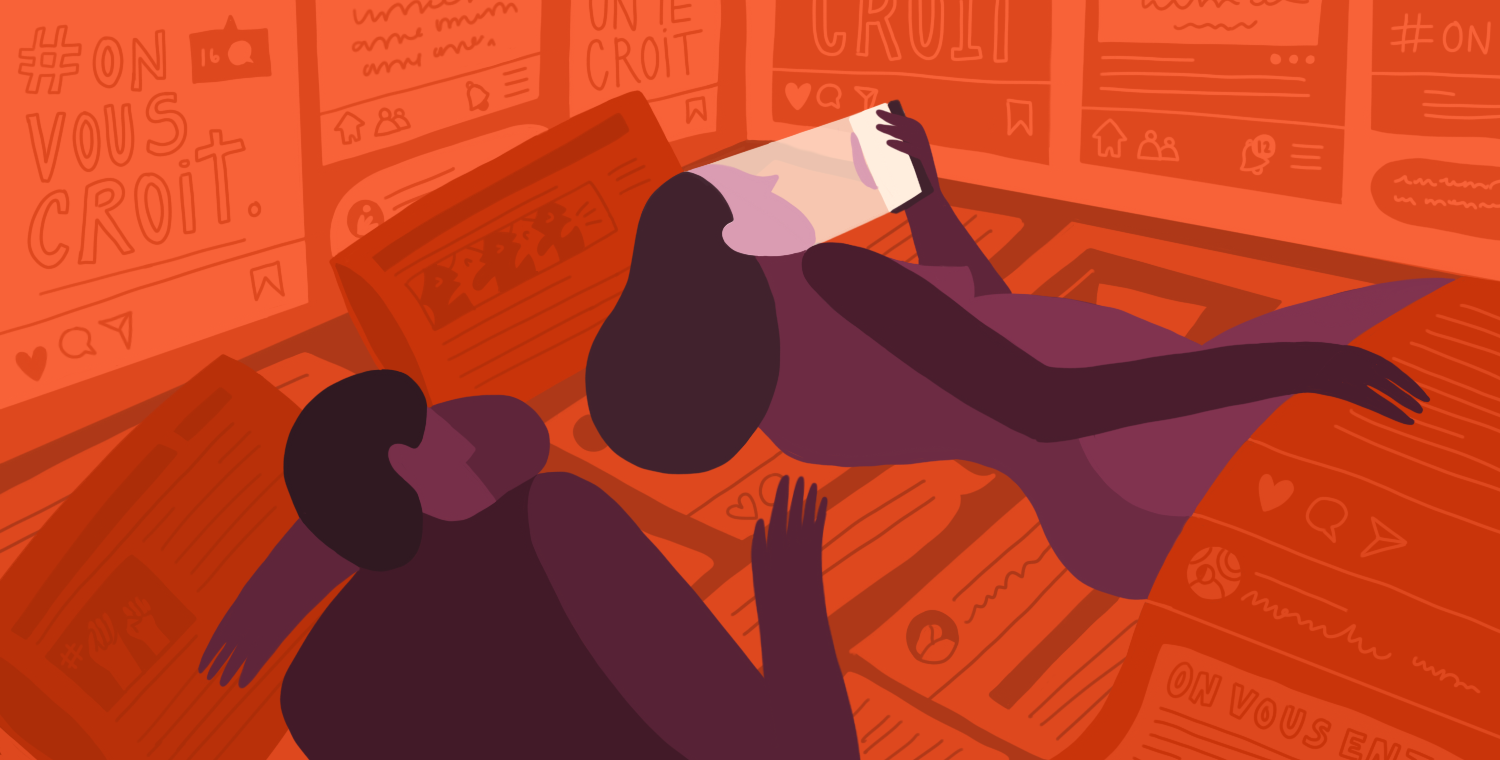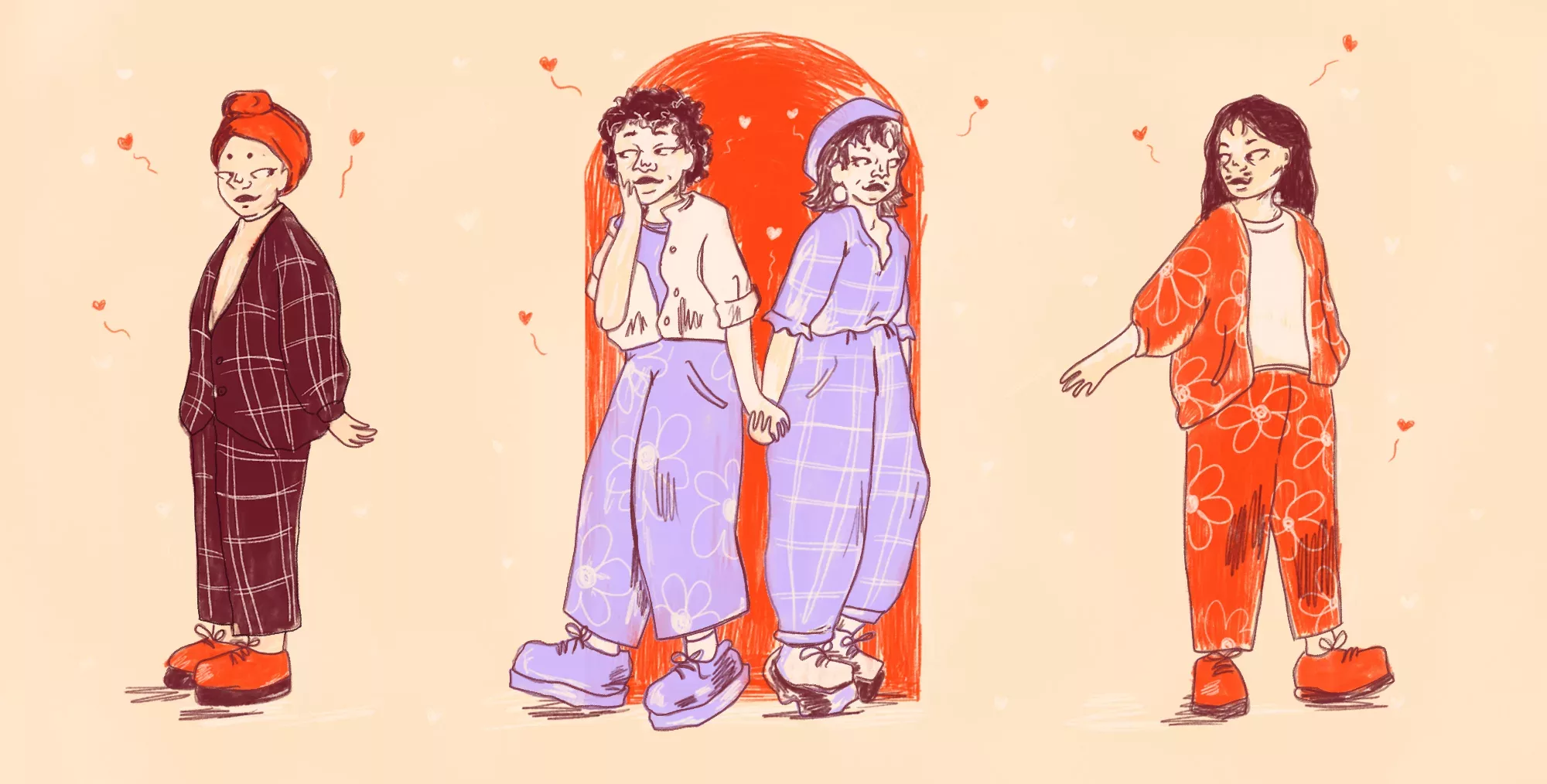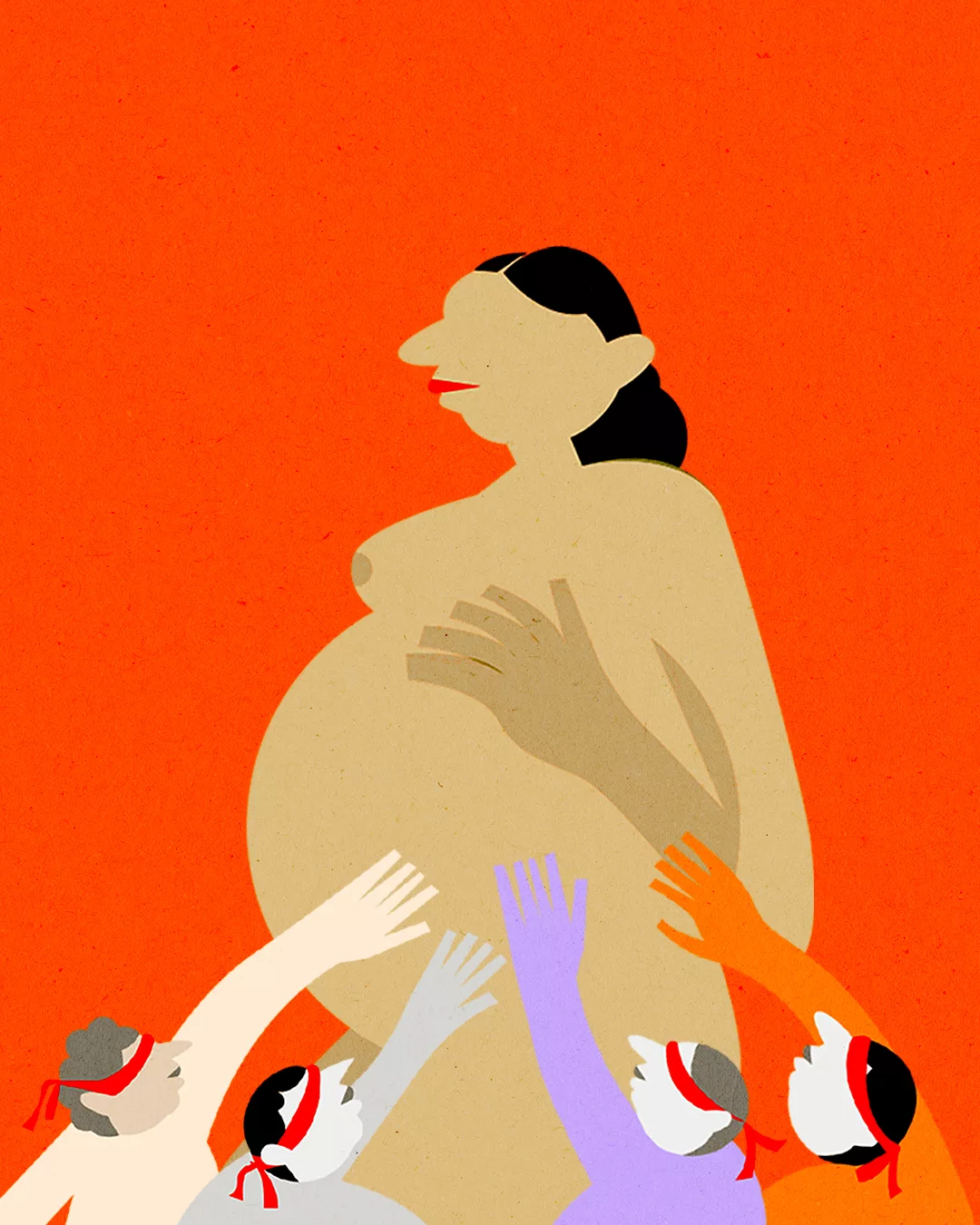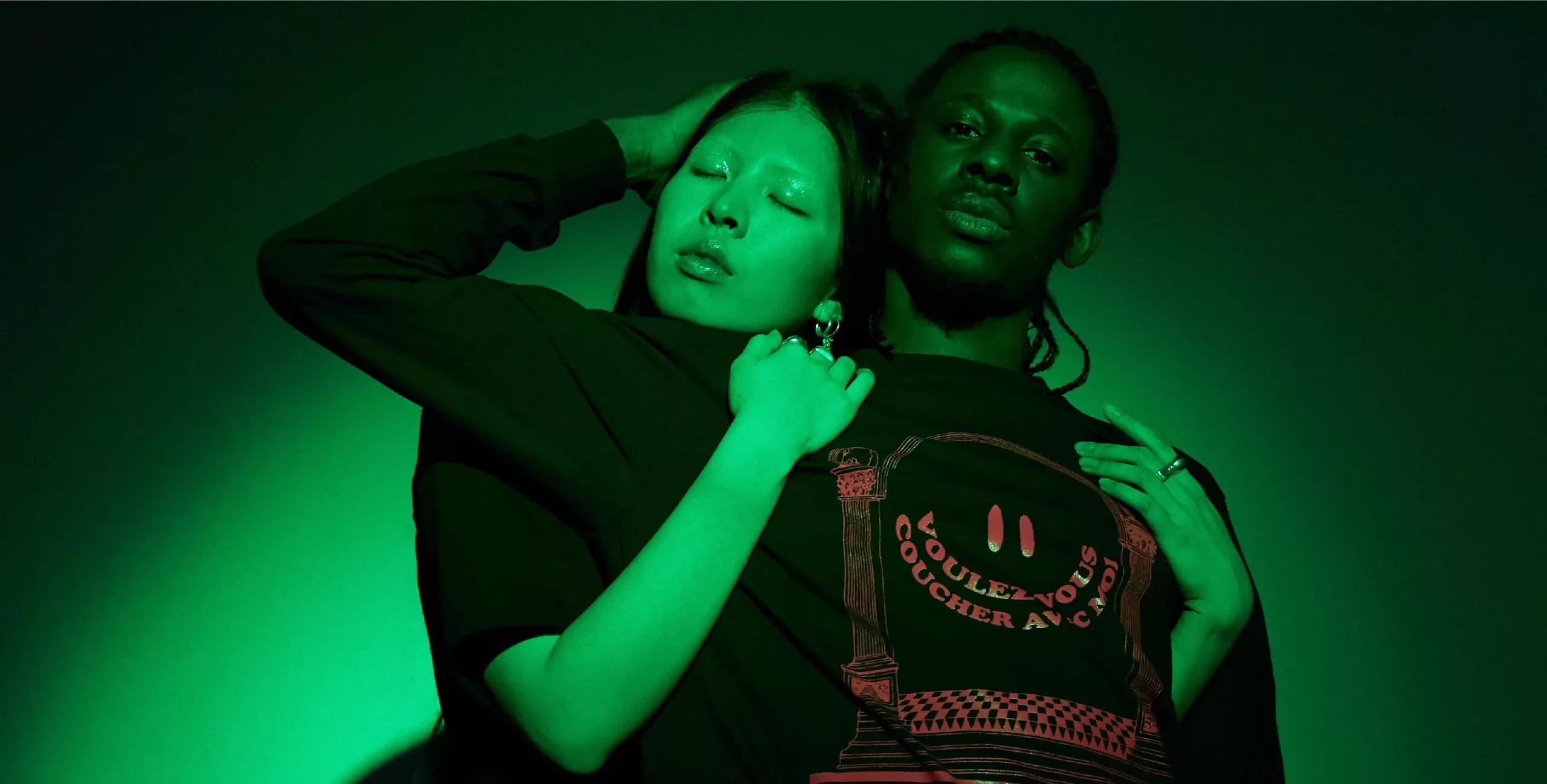Your cart is currently empty!

I Regained my Libido Six Months After the #MeToo Wave
In early July 2020, a wave of denunciations of sexual misconduct, harassment, and assault hit Quebec. Somewhere between the sadness of realizing that so many people around me have been victimized and the anger that some (many?) were capable of committing such terrible things, I started questioning my own sexual behaviours. Unbeknownst to me at the time, that one phone call requesting he come over (2 meters apart, of course!) and calm me down, was the catalyst to a new dynamic with him, and the beginning of a sexual rebirth for me.
For the second summer in a row, I found myself sunbathing in Gaspé with both feet in the hot sand, while notifications on my phone soared, casting a shadow over the otherwise sunny day. Despite the gorgeous weather and pretty scenery in front of me, on my worn-out phone, things were increasingly bleak and gray. Between pages of a book I’d slowly been reading for months on end, I perused Facebook and Instagram. Far from a little digital escapism, I discovered that the name of a guy I had briefly dated a few months ago – let’s call him X – was spreading like wildfire all over the internet.
As I dove in (sadly, not to the warm vacation water I had been so looking forward to, but instead to the sea of comments and stories circulating social media) I read dozens of women’s accounts of the horrific nights they had spent with X. A knot filled the pit of my stomach. Anxiety. Sadness. Anger. Self-questioning. I was on vacation, far from everything, but these posts jerked my thoughts and heart back to Montreal in a matter of seconds. I became lost in my disorganized thoughts, as though I was walking through a maze with no way out. An unpleasant journey that nevertheless led me to discover a tougher version of myself that had been, for some time now, losing patience with another, perhaps more “fragile” me.
The questions flurried in my mind like unwelcome snowflakes on a beach day:
Why had X always acted fine with me, but not with the other women with whom he had spent evenings and morning-afters?
By dint of hearing my inner voice asking me this question, I began to feel guilty and to tell myself that I was perhaps responsible for the harm he had inflicted.
Libido below zero
That evening, I remember having dinner with my best friend Sony, to whom I can normally say anything and passionately rant with abandon. Yet, on that particular evening, I barely uttered more than a couple of sentences. Later, before going to bed, I texted Simon – an ex of mine with whom I had had a dead-end relationship that we unsuccessfully had tried to revive, yet someone whom I have been sharing every intimate detail of my life with in recent years and had always felt comfortable with. A dozen text messages later, we agreed to meet up once I got back from Gaspésie.
-
I feel guilty. Reading those denunciations, I feel as though he tried to reproduce some of the stuff we did together – stuff I was okay with – with women who weren’t.
It was during that conversation with Simon that I came to understand that I had no reason to blame myself for what he did, but that it’s also okay, perhaps even a good thing, for people to question their own behaviours. I don’t know if it’s something Simon said that warm evening on my balcony while we were sipping beer and eating cucumbers drenched in ranch dressing, but I wanted to love him again.
The idea of making love to him, however, terrified me. I was afraid of doing things that weren’t “right”, of hurting him, or of getting hurt. I was afraid of never getting my libido back, the sexual desire that had completely dried up the moment the guilt seeped in when I heard that the guy I had rough sex with had forced the same kind of sex onto others.
Exchanging fluids, being stuck in second gear
Though I can’t really say that we tried anything new, how I felt between the sheets with Simon, my ex and now boyfriend again, still felt new nonetheless. Whenever we would give each other pleasure with our tongues, hands, and bodies, I felt the need to verbalize the acts and behaviours that I was about to do or the things we were doing, just to make sure we were on the same wavelength. In all of our sexual encounters, I slammed the door of spontaneity shut, in order to cast wide open the window shining a spotlight on consent.
-
Do you want to cuddle for a bit?
-
You seem turned on, does that mean you want to have sex?
-
I want you right now, but I don’t know how to proceed.
-
I want to make love.
These are some of the things I said to Simon, who in hearing them, quickly felt his arousal plummet; he needed a bit more spontaneity, which I wasn’t able to offer him, at least not then. Not yet. Together, however, we slowly but surely, relearned the notion of consent.
-
You don’t have to ask me for my consent or constantly explicitly say the things you want to do. This is a safe space. Our space.
Simon repeated this to me for weeks before I understood that consent could be expressed in other ways beyond just using my words. For example, with insider codes we created together. While we didn’t need to go that far, I did explore the idea of creating an underwear color code where each color would have meant something specific. Sort of like what people did in teen movies with socks or scrunchies on doorknobs to signal that the room was occupied for naughty intimacy.
Spankings and misgivings
Beyond advancing my “expertise” on consent, I have found that my tastes in bed have completely changed as well. Before the wave of denunciations, I had enjoyed reproducing certain things I had seen in pornography; scenes to which I would secretly masturbate. Since then, however, I just wanted someone to pet my hair while they quietly whispered “I love you” in my ear. Before, a slap on the ass was more than enough to spark my desire, but now it had the opposite effect; it would turn me into ice. I was afraid of losing Simon because our sex life was far from what it had been, years ago. He too, became afraid; afraid of disappointing or hurting me.
For a long time, I had the impression that our sex life – once beautiful, carefree, and harmonious – had become a needle in a haystack: almost impossible to get back. I worried Simon would eventually get tired of my mixed messages, or annoyed by all the times I told him how guilty I felt about enjoying sexual behaviours that, at that time in my mind, had become profoundly deviant.
Our conversations in the middle of the night, my sexual frustrations, and my feelings of guilt eventually dissipated. Today, I understand that the intensity of a sexual encounter between two (or several) people, when it is consensual, has nothing to do with sexual deviance, harassment, or even assault. I also understand that consent can be given in more ways than one.
Above all, through this unlearning and rebuilding experience, I came to understand that I, Catherine, was not responsible for what X, that guy I had dated, had done to other women.
The real issue was that he tried to replicate (or not) the stuff we had done together in a way that blatantly ignored consent. I’m not the problem. I am not to blame, and neither are the women he assaulted.
Six months have passed since that #MeToo wave. I’d be lying if I said that I’m back to fully experiencing my sexuality in the present moment, and in my body, rather than up in my head. But I’m far from the over-rationalization that I had been trapped in. I’ve slowly begun to enjoy being spanked in the middle of sex again and saying all those delightful yet daring things to each other that I’m too embarrassed to write here.
-
Bancroft, J. & Janssen, E. (2000). The dual control model of male sexual response: A theoretical approach to centrally mediated erectile dysfunction. Neuroscience & Biobehavioral Reviews, 24(5), 571-579. https://doi.org/10.1016/S0149-7634(00)00024-5
Curtis, J. N., & Burnett, S. (2017). Affirmative consent: What do college student leaders think about “yes means yes” as the standard for sexual behavior?. American Journal of Sexuality Education, 12(3), 201-214. https://doi.org/10.1080/15546128.2017.1328322
Jozkowski, K. N., Marcantonio, T. L., Rhoads, K. E., Canan, S., Hunt, M. E., & Willis, M. (2019). A content analysis of sexual consent and refusal communication in mainstream films. The Journal of Sex Research, 56(6), 754-765. https://doi.org/10.1080/00224499.2019.1595503
Lehmiller, J. (2018). Tell me what you want: The science of sexual desire and how it can help you improve your sex life. Da Capo Lifelong Books.
Shumlich, E. J., & Fisher, W. A. (2018). Affirmative sexual consent? Direct and unambiguous consent is rarely included in discussions of recent sexual interactions. The Canadian Journal of Human Sexuality, 27(3), 248-260. https://doi.org/10.3138/cjhs.2017-0040
Willis, M., Canan, S. N., Jozkowski, K. N., & Bridges, A. J. (2020). Sexual consent communication in best-selling pornography films: A content analysis. The Journal of Sex Research, 57(1), 52-63. https://doi.org/10.1080/00224499.2019.1655522






